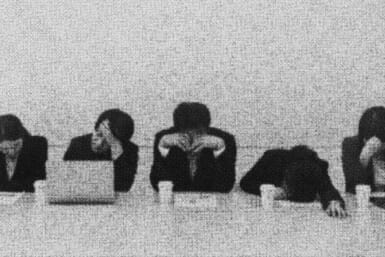As Tokyo’s COVID-19 cases continue to climb, Prime Minister Shinzo Abe declared a state of emergency for seven prefectures, including the Tokyo metropolitan area. It’s a decision that’s been hanging by a thread for weeks now; the thread has finally frayed.
Tokyo Governor Yuriko Koike has asked businesses to “thoroughly implement effective control measures” and for people to stay home except when necessary. This will result in temporary closures, shuttered high streets, looming concerns over job security and businesses of all sizes staring into the abyss of financial turmoil.
In order to assess how your employment and wage scenarios may be affected by the state of emergency, the Japanese Labor Standards Act is a good entry point. Let’s take a look at the permutations through some potential FAQs.
https://www.tokyoweekender.com/2020/04/covid-19-in-japan/
Will my company force me to take unpaid leave?
Article 26 of the Labor Standards Act states: “In the event of an absence from work for reasons attributable to the employer, the employer shall pay an allowance equal to at least 60 percent of the worker’s average wage.”
If your absence from work is company-enforced, you’ll receive 60–100% of your salary. The exact percentage will be dictated by official policy, contract stipulations and the business’ financial state of affairs.
Article 27 applies to contractors and piece rate employees: “With respect to workers employed under a payment at piece work system or other subcontracting system, the employer shall guarantee a fixed amount of wage proportionate to working hours.”
An example of the above would be a company reflecting on the work a subcontractor has provided over a previous period, and paying the employee on a pro rata basis. For example, you earned an average of ¥300,000 over the last three months, that is proportionally how much you will receive during your time of absence.
I contracted COVID-19; will my company still pay my salary?
Article 76 pertains to compensation for absence from work: “In the event that a worker does not receive wages because the worker is unable to work by reason of medical treatment under the provisions of the preceding Article, the employer shall pay compensation for absence from work at the rate of 60 percent of the worker’s average wage.”
In practice, this means you are guaranteed a minimum of 60% of your salary if you are temporarily incapacitated by the virus. The ‘preceding Article’ mentioned above, notes that companies will foot any relevant medical bills if the virus is contracted while you’re at work.
I feel unwell; can my company ask me to come to work?
The answer to this question hinges heavily upon government directives, and whether all commuting in Tokyo stops during the lockdown. For now, those who feel unwell are supposed to isolate at home, and if symptoms persist for over three days, call the local coronavirus hotline.
With Japan’s notorious lack of testing for COVID-19, attaining official confirmation that you have contracted the disease may prove difficult. The majority of employers across Japan have shown increased empathy amid these uncertain times, but may still be at liberty to decide if employees receive any salary while absent, in lieu of using paid annual leave.
It is worth noting your employer cannot force you to work, as referenced in Article 5 of the Act: “An employer shall not force workers to work against their will by means of physical violence, intimidation, confinement, or any other unfair restraint on the mental or physical freedom of the workers.”
https://www.tokyoweekender.com/2020/04/tokyo-state-emergency-affects/
What happens if my company files for bankruptcy?
According to Japanese law, companies can file for bankruptcy in relatively short order, but are obligated to pay their workers 80% of their remaining salaries (with an age-dependent cap of between ¥880,000 to ¥2.96 million).
Admittedly, things can get a little trickier. In the wake of the 2011 Great East Japan Earthquake, companies up and down the country were filing for bankruptcy at a rate of knots. We can loosely apply that model to the current crisis.
In a best case-scenario if your company files for bankruptcy, the owners will apply to the court before going into receivership. A second more dangerous scenario was favored amid the economic struggles of 2011: the company owner terminates operations, leaving creditors and employees to fend for themselves.
Pandemics often invoke force majeure clauses, absolving bankrupt businesses of financial responsibility to their employees. While the legal semantics around the word ‘pandemic’ are open to interpretation, it is generally considered an ‘unavoidable circumstance’. The upshot is, if your company goes bankrupt and doesn’t have the ability to pay you, there may be few options other than accepting your fate, or proceeding with costly (and possibly unfounded) litigation.
I’ve been laid off, what’s my next step?
Obtaining a ‘rishoku-hyo’ (certificate of job separation) should be your first port of call. This makes recently unemployed ‘haken-shain’ (contracted employees) eligible for compensation starting from seven days after their employment period ends.
You can then apply for unemployment benefits from the Hello Work public office. The set period of time you can claim benefits and the amount you receive is dependent on a variety of factors – age, industry, previous salary, how much you’ve paid into the system through deductions, family conditions, length of time worked at previous company, etc.
Abe has also prepared a ¥108 trillion stimulus package – part of the reason why a state of emergency has taken so long to implement – to help both the economy and individuals in need. A portion of the stimulus will be used as cash handouts for struggling households, with specifics to be laid out this week.
Law References
Labor Standards Act: http://www.japaneselawtranslation.go.jp/law/detail_main?id=5&vm=2&re
Act on Ensuring Wage Payment: http://www.japaneselawtranslation.go.jp/law/detail/?printID=&id=2325&re=02&vm=02
Bankruptcy Act: http://www.japaneselawtranslation.go.jp/law/detail/?id=2304&vm=02&re=02









